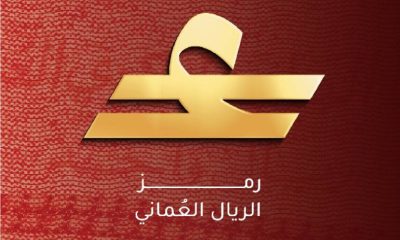Cover Story
How Is VAT Expected To Affect People And Businesses In Oman?

Business Live Middle East analyses the Value-Added Tax (VAT) regime that will be introduced in Oman by 2021, and how it will affect the Sultanate’s economy.
From what was essentially a concept in writing to what will soon become a reality, people in Oman are bracing themselves to weather the economic change that will be brought about by the value-added tax (VAT).
Companies too foresee great changes in the months leading up to the new 5 per cent tax regime as they must adapt and prepare before the new rule takes effect on April 16, 2021.
But it is people from the common public that are raising questions – and with over 50,000 tweets, social media platform, Twitter, witnessed the hashtag ‘Value-added tax’ (translated from Arabic) trending for over 24 hours.
Nouf al Amri, an Omani artist and a college student at the Higher College of Technology says: “Ever since we heard the news of VAT, we all have questions regarding how much more goods and services will cost us.
“Will the price of our academic materials go up? Will we need to spend more on dining out? How much will college education cost? Will petrol cost more?,” a concerned Nouf asks us.
Thankfully for Nouf, clarification of the services that will be VAT-exempted or zero-rated came early from the Oman Government Communication Center (Oman GC).
As per a government document procured by Business Live Middle East, education services and goods related to the same will not fall under the tax umbrella.
Other goods and services that will remain zero-rated or VAT-exempted include:
1- Basic food commodities
2- Medical care services and related goods and services
3- Education and related goods and services
4- Financial services
5- Undeveloped or vacant lands
6- Resale of residential properties
7- Transport services for passengers
8- Renting real estate for residential purposes
9- Supply of medicines and medical equipment
10- Supply of investment gold, silver, and platinum
11- Supplies of international transport and interchange of goods or passengers and the supply of related services
12- Supply of rescue and aid aircraft and vessels
13- Supply of crude oil, petroleum products, and natural gas
14- Supply means through sea, air, and land transport for the transport of goods and passengers for commercial purposes and the supply of goods and services related to transport
15- Charities and essential supplies for people with “disabilities”.

Value-added tax (VAT) is essentially defined as a consumption tax placed on a product whenever value is added at each stage of the supply chain; from production to the point of sale, as per the financial information portal, Investopedia.
The introduction of VAT from 2021, as per KPMG – a professional firm providing Audit, Tax, and Advisory services, will help generate a new source of income for the country. VAT is expected to generate revenues almost equivalent to the corporate tax collections.
While more details on the projected VAT income for Oman are expected soon, early estimates show an RO400 million increment to the nation’s income upon its activation in 2021.
Albeit, the United Arab Emirates, which implemented VAT in 2018, saw sizeable growth in its VAT income than what economists had earlier projected.
The nation’s residents paid roughly AED27 billion as VAT in 2018, which surpassed the government’s target of collecting AED12 billion – marking an increase of 125 per cent. It even reportedly surpassed the goal of AED20 billion VAT revenue collections for 2019.
The International Monetary Fund (IMF) estimates VAT to generate revenues of 1.5 to 2 per cent of the GDP for the GCC economies. The additional revenue will help in reducing the fiscal deficit which is expected to go up significantly as a result of the negative effects of the COVID-19 pandemic on the economy.
Be that as it may, the most significant benefit for the government is the creation of a new source of revenue linked to consumption, says Ashok Hariharan – the Partner and Head of Tax at KPMG – in an exclusive interview with Business Live Middle East.
He adds: “This will assist in the government’s agenda to diversify away from oil and gas. It will be favorably viewed by credit rating agencies, which in the recent past have been downgrading Oman’s ratings primarily because of Oman’s inability to find new alternative sources of income.
“The benefit of a VAT system is that if the economy grows and therefore the consumption, revenues will automatically increase even with the rate of VAT remaining unchanged.”
However, he points out that there will likely be a short-term, one-off impact on inflation.
But the Head of Tax maintains his optimism. He says: “Given that the VAT rate is only 5 per cent and there are zero-ratings and exemptions provided to certain sectors including basic foods, the inflationary impact should be limited.”
In 2019, the inflation rate in Oman stood at 0.13 per cent, which was a 0.75 per cent decline from the same period in 2018.
Meanwhile, the Sultanate’s Consumer Price Index (CPI)-based inflation fell by 1.22 per cent in September 2020 compared to the same month of 2019, according to data released by the National Centre for Statistics and Information (NCSI) on the consumer price index.
“VAT could have an impact on the consumption pattern and buying behaviors. However, given the low rate, this should not be significant. For businesses, there will be a direct impact arising from the need to change processes and systems to comply with the VAT law.
“It should be noted that VAT is a transactional tax and hence impacts all transactions involving goods and services. Businesses could also be impacted in the short term by any negative effect on consumption.”
This is translating to some business owners considering “a complete absorption” of the VAT and holding the prices at pre-tax levels. In a conversation with Business Live Middle East, the owner of a leading food chain in Oman (who wishes to remain anonymous due to the complexity and infancy of statistics available on VAT), says: “VAT is a great opportunity for the government to drive in funds for its activities; however, it will affect me as an SME.
“People are used to paying a certain price, and once they find that the prices have changed – even if it is by 5 per cent – that’s added money from their pocket… and they’re not used to it.
“I might lose my customers. So, I’m still studying, from my end, the effects of VAT and how I can tackle that. Perhaps, I can take it on my own expenses or my own profits and pay for it, or find a middle ground where the customer can pay 1 per cent and I, as a company, will pay 4 per cent of the cost.”
But we find that absorbing VAT may not be as simple as indicated by the businessman. A Deloitte report titled, ‘Value Added Tax in the GCC’, states: “One of the key principles of a VAT system is that it should be borne by the end consumer, whether an individual or an unregistered business.
“Neither would, as a general rule, be in a position to register for VAT and therefore recover VAT incurred on their purchases.
“As a result, VAT will represent an additional cost of living or doing business for those affected. Retailers that are required to register because they exceed the VAT registration threshold (and those that register on a voluntary basis) are required to account for VAT on their sales.
“That is, they are responsible for collecting VAT and paying the net amount of VAT that they collect to the Taxation Authorities. The reason we refer to them being required to pay the ‘net amount of VAT’ is that they are generally entitled to deduct the VAT that they have paid to other businesses for purposes relating to their conducting the business of making taxable supplies.”
The report adds that retailers should consider undertaking a detailed price modeling analysis (at least on their large volume, or high-value stock items) to understand what effect the introduction of VAT could have on demand for their product.
This will help them decide how much, if any, of the VAT cost they may be able to pass on to the customer.
Companies will inevitably play a vital role in effecting the smooth implementation of VAT in the Sultanate; and preparing themselves for April 2021 must be a priority. Ashok Hariharan from KPMG adds: “The introduction of VAT requires fundamental and wide-ranging changes across an organisation.
“It is multifaceted and impacts tax, finance, procurement, sales and marketing, supply chain, logistics, legal, information technology, and even HR. Therefore, it is critical that companies invest in careful and timely planning in order to be adequately prepared.
“Business leaders need to understand and assess the impact VAT is likely to have on various aspects including but not limited to cash flow, profitability, procurement policies, contracts, pricing, systems, and even employee policies.
“To begin with, it is advisable that businesses list down all the transactions, current and future, procurements, supplies, capital expenditure, and employee policies and understand the tax position in relation to each of these; assess the impact on business – financial i.e. working capital, profits, and pricing as well as business i.e. changes in consumer behavior, demand and supply chain; and review contracts; review the impact on processes, systems, documentation and prepare them to be VAT compliant; and train teams to ensure that they understand the impact on all facets of the business and take collective ownership to ensure a smooth and compliant transition,” he explains.
Oman, along with other members of the Gulf Cooperation Council (“GCC”), is a signatory to the Common VAT Agreement of the States of the GCC. And when implemented, Oman will become the fourth GCC country to add VAT after Saudi Arabia, UAE, and Bahrain.
The Common VAT Agreement sets out a GCC model and principles for VAT, which are similar to the VAT system in the European Union.
The VAT model in Oman will, therefore, have a lot of similarities with the current VAT model in KSA, UAE, and Bahrain; although there are expected to be some key differences.
Saudi Arabia, for instance, applies 15 per cent VAT on its goods and services.

The GCC VAT Agreement provides for different types of registrations based on turnover, company size, Free zone status, and non-residential status among others.
Currently, businesses have been requested to determine whether they fall into the threshold to obtain registration for VAT. As per tax consulting company SKP Group, firms that fall under the mandatory registration base are those with an annual turnover reaching RO38,500 or US$100,000.
Meanwhile, those companies with an annual turnover of RO19,250 or US$50,000 must voluntarily register.
For the purposes of mandatory registration, only the value of supplies will be considered, while for voluntary registration, the value of supplies, as well as inputs (expenses) subject to Oman VAT, will be considered.
The introduction of any new tax regime is likely to have an immediate, even if temporary, impact on trade, including international trade. To ensure that the impact is not significant and international trade remains competitive, the Oman VAT law, like most other countries that have a VAT system, allows for zero-rating of export of goods and services, says Ashok.
It provides for the suspension of VAT on most transactions within, with, and by special economic zones or Free zones.
In Conclusion:
While VAT is expected to bring in roughly RO400 million into the Sultanate’s coffers, experts say that its implementation will not be without its challenges. However, the move reinforces Oman’s stand in implementing strict measures to bolster the nation’s finances as it strives to achieve the goals set under Oman Vision 2040.
Know The Terms: Zero-rated VAT vs. VAT exemption
Zero-Rated VAT translates to those goods and services that are taxable as VAT but at a rate of 0 per cent. Companies must keep a record of these transactions and report them on their VAT returns.
A VAT exemption is offered on goods and services in Oman that cannot be charged as VAT.
For more insights, stay tuned for a complete review of Oman’s VAT regime.
-

 Banking & Finance2 weeks ago
Banking & Finance2 weeks agoOman Oil Marketing Company Concludes Its Annual Health, Safety, Environment, and Quality Week, Reaffirming People and Safety as a Top Priority
-

 Economy2 months ago
Economy2 months agoMaal Card: What Oman’s New National Payment Card Means for Everyday Users
-

 Leaders Speak2 months ago
Leaders Speak2 months agoDhofar International Development and Investment Company: Driving Sustainable Growth and Strategic Synergies in Oman’s Investment Landscape
-

 Events2 months ago
Events2 months agoOER Corporate Excellence Awards 2025 Honours Entities and Innovations in Oman
-

 News2 months ago
News2 months agoSheikh Suhail Bahwan, Chairman of Suhail Bahwan Group, Passes Away
-

 News1 month ago
News1 month agoOIG Appoints New CEO to Lead Its Next Chapter of Excellence
-

 Economy2 months ago
Economy2 months agoOman Unveils Official Omani Rial Symbol in Landmark Move to Boost Global Currency Presence
-

 News1 month ago
News1 month agoReport: How India & The Middle East Are Exploiting Immense Economic Synergies



























